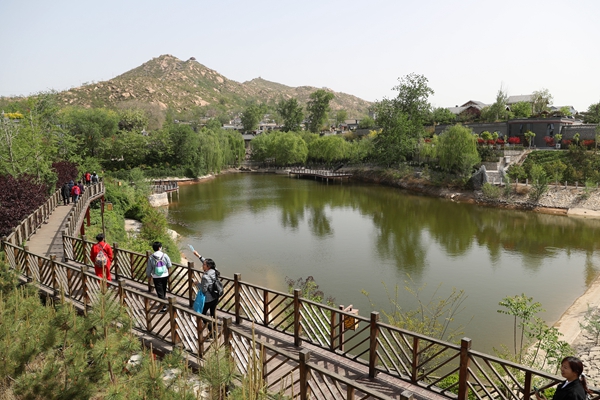A tourism revolution
By Wang Ru/Gao Yamei | China Daily | Updated: 2021-05-28 09:30

"At the end of the day, Lijiazhuang is the villagers' home, not just a scenic spot for tourists. So, when we upgrade the homestays, we try to keep their respective characteristics, instead of making them all the same," Hou adds.
He also transformed two deserted cave dwellings into a shop selling local products like honey, tea and vinegar, which hires villagers who have just shaken off poverty to run the business in turn. The income belongs to the village to help those who have difficulties, and those on duty can get subsidies for their work.
Hou plans to develop a mini program on WeChat through which people can buy local products, register for a time slot to visit revolutionary sites and the fruit-picking gardens, as well as book rooms at the homestays, so that these tourism elements become more connected.
Although the village was lifted out of poverty in 2018, and the average per capita annual income has reached 25,000 yuan, Hou still has concerns about the nine households which have most recently shaken off their impoverished status, for fear that they may begin to face difficulties again.
Villager Gu Yongshe, 68, was lifted out of poverty in 2016. Hou often visits his house to check on his family situation. When Hou found Gu has the capacity to work but just stayed at home, he introduced Gu to go to a nearby company to do some cleaning work.
"Gu often goes to work on time, completes his tasks well, and is very friendly to tourists. As a result, he won recognition from the company, and can earn about 2,000 yuan a month now," says Hou.
























